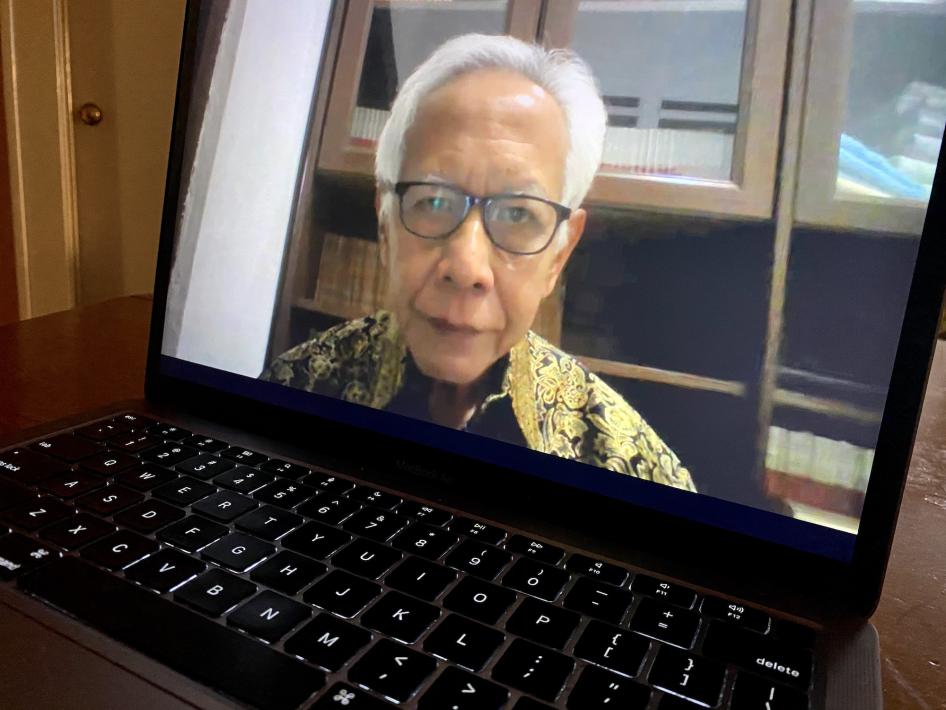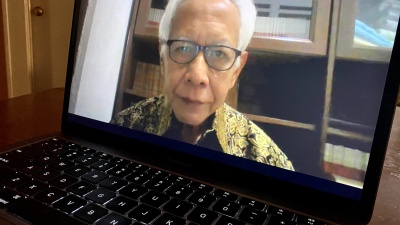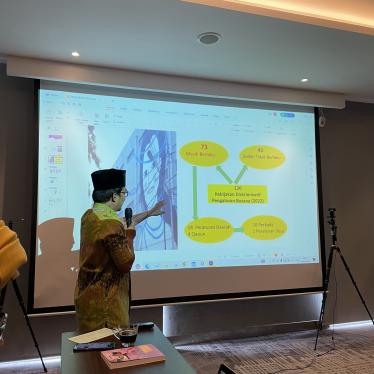This month marks the third year behind bars for 74-year-old Apollinaris Darmawan. He was convicted under Indonesian law for “blasphemy” for writing a book and posting on social media his criticisms of Indonesia’s Muslim leaders and Islamic law. His prosecution violates his rights to freedom of expression and belief protected by the International Covenant on Civil and Political Rights (ICCPR) and other treaties ratified by Indonesia.
Darmawan is a retired railway company executive who converted from Islam to Catholicism. In August 2020, a Muslim mob stormed his home in Bandung, West Java, dragged him into the street and stripped him before police came to his rescue. The police took him into custody and charged him with blasphemy for defaming Islam and insulting the Prophet Muhammad on Twitter (now X) and YouTube.
In December 2020, the Bandung district court convicted Darmawan and sentenced him to five years in prison and an 800 million rupiah (US$55,000) fine for blasphemy under the Electronic Information and Transaction Law.
This was not the first time Darmawan has been jailed for blasphemy. After he retired in 2005, he wrote books about Indonesia’s founding President Soekarno and Islam. In 2009, he published a book, Enam Jalan Menuju Tuhan (Six Ways Toward God), that critically compared religious teachings and figures, particularly Islam.
In 2017, police arrested him for blasphemy, and a Jakarta court later found him guilty and sentenced him to four years in prison. He was released on parole in March 2020.
The United Nations Human Rights Committee, which provides authoritative interpretations of the ICCPR, has stated that “blasphemy laws … are incompatible with the Covenant.” Such laws may not “discriminate in favour of or against one or certain religions or belief systems, or their adherents over another, or religious believers over non-believers. Nor would it be permissible for such prohibitions to be used to prevent or punish criticism of religious leaders or commentary on religious doctrine and tenets of faith.”
Darmawan’s views, however controversial, should not result in prosecution and imprisonment. He has already served two-thirds of his prison term, which makes him eligible for parole. No one should be imprisoned simply for peacefully expressing their opinions.










